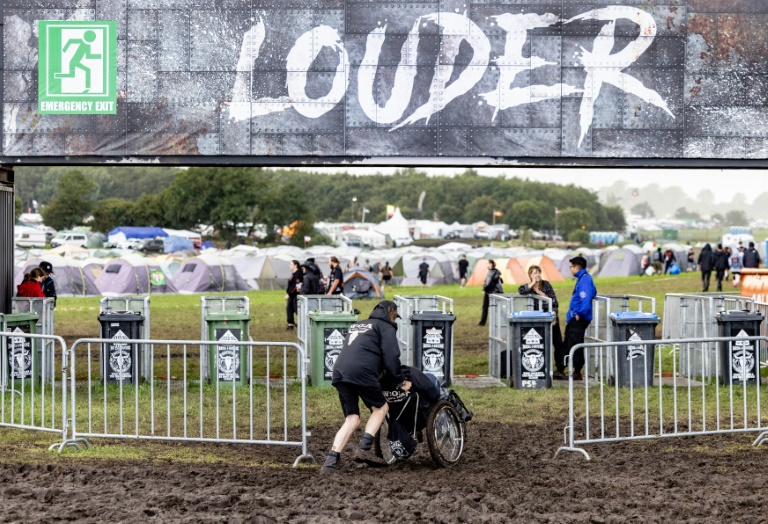The families have appealed to the government, district administration and local residents for protection.
Gurugram:
The human toll of the violence that broke out in Haryana’s Nuh and spread to other parts of the state cannot be measured only in terms of the dead and the injured, and a locality in Gurugram is a glaring example of this. Of the over 100 Muslim families from West Bengal that were staying in the locality, only 15 remain, and even they say they are petrified and are not going back only because they don’t have the money to do so.
Tears welling up in his eyes, and hands folded, 25-year-old Shamim Hussain pleaded, “Last evening, some people came and asked all Muslims to leave. We don’t have money to go back and even have debts to pay to the local shopkeepers. It’s okay if something happens to me, but I have a one-year-old son. It is my sincere request to the government, district administration and local residents to protect us. Help us, please.”
Earlier in the day, the Gurugram district commissioner had given an assurance that migrant families will be protected. He said there will be overnight deployment in sensitive areas and around religious places of both communities – mosques as well as temples.
Nearly 60 people visited a landlord in the locality – which is right next to some posh high-rises in the city – on Tuesday evening and instructed him to ask all Muslim families to leave within two days.
People in the locality knew the threat was not an empty one, because a housekeeper had been beaten up on Tuesday afternoon by a mob who had just asked him his name.
A man who supervises a housekeeping operation from the locality and has 30 people working for him, said, “Only four people came to work today. A man who works here was travelling on the road when a mob asked him his name. He answered, nothing more was said, and he was beaten up. We got him here and gave him first aid. He has left for his village in Bengal this morning.”
“We are also scared. We will go out on the road and somebody will thrash us. We can’t do anything because our village is far away, in West Bengal. If you can help us, we will be grateful,” the man added.
While talking to the families, NDTV also witnessed two people on a bike asking the Muslim residents to leave the area.
Mr Hussain’s mother, Safia, 40, said, “Around 60 people came around 7 pm yesterday. They didn’t speak to us. They spoke to the landlord and told him to ask all the Muslims to leave. Everyone has left and only 15-16 families remain. There were over 100 families living here. We can’t leave because we don’t have money to pay for the fare and the food on the way.”
Speaking to NDTV at his home later, Mr Hussain said it had only been seven days since he had come to Gurugram from Bengal to earn a living. He had got a job as a food delivery agent just two days ago, and has not been paid yet.
“My one-year-old boy is called Alishan. I am petrified that they will come and beat me and my wife, and my son will cry seeing that. My wife is also scared and has been crying for the past two nights. We can’t go back because we have no money in the village either. How will we survive?”
Another resident said, “It’s not about Hindus or Muslims. Whoever is engaging in violence is to blame. But poor people like us are paying the price. We are daily wagers and we are not being able to leave the locality to go to work. We will go hungry if this continues.”
The district commissioner of Gurugram had said earlier in the day that the situation is peaceful now and complete normalcy is likely to be restored in the city tomorrow.
“We have received some news of migrant workers being asked to vacate their premises. We have sent district and police officials to the spot and are undertaking confidence-building measures. I would like to assure them of protection. There will be overnight deployment in sensitive areas and around religious places of both communities – mosques as well as temples,” Gurugram Deputy Commissioner Nishant Yadav had said.
Six people have died since Monday following rioting in Haryana’s Nuh, about 80 km from Delhi. The violence was sparked by a religious procession taken out by VHP and Bajrang Dal, which came under fire and heavy stone-pelting. It spread from there to adjoining areas, including Gurugram.






